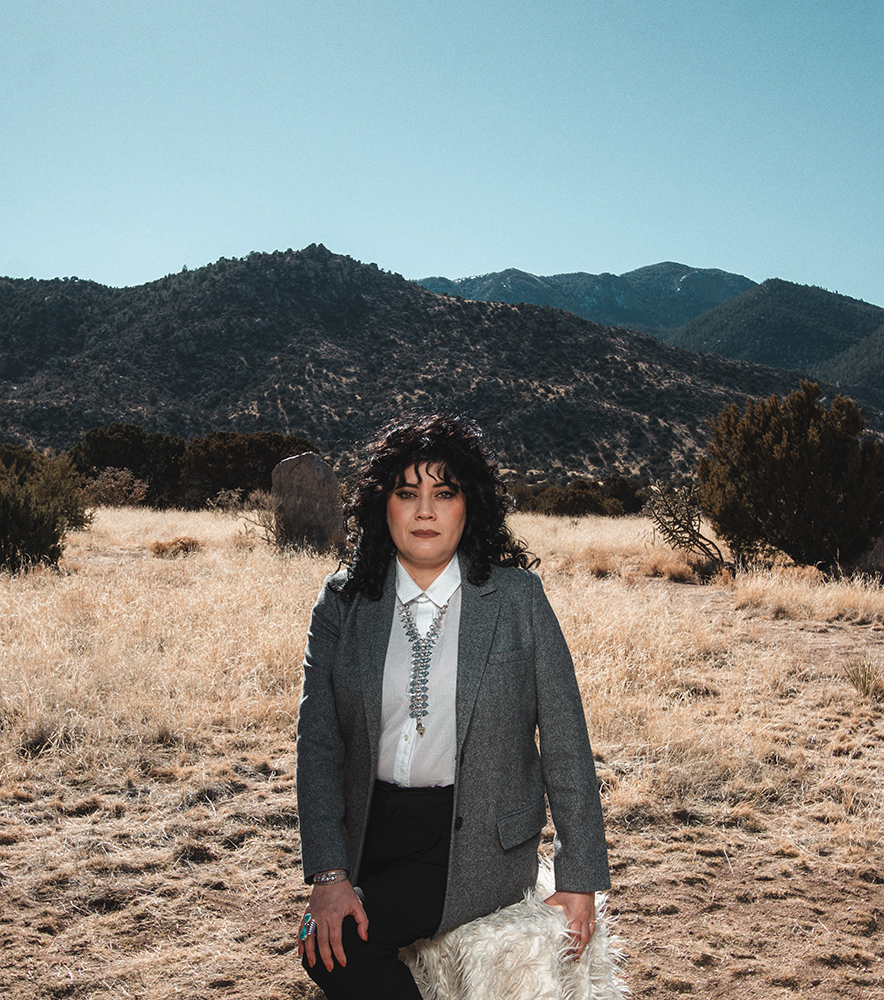Professor Bernadine Hernández
Thursday, October 19, 2023
11:00 am
Flowers Hall 230 and Online via Zoom
Registration Closed
Professor Bernadine Hernández
Thursday, October 19, 2023
11:00 am
Flowers Hall 230 and Online via Zoom
Registration Closed
Building from federal court transcripts in late 19th century New Mexico and Arizona, Dr. Bernadine Hernández demonstrates the deep interconnections across oral testimony, literary writing and autobiography across 19th century Mexicana, Nuevomexicana, Californiana, and Tejana lives. The interconnections follow from the way sexual capital was remade in the anchoring of U.S. authority in the Southwest. The analysis here highlights (1) how pivotal Mexicanas, Nuevomexicanas, Californianas, and Tejanas were to the exercise of power in what is now the Southwest, and (2) how their presence has been obscured by subsequent stories of the peopling of this region.
In the book Border Bodies, Dr. Hernández has completed a theoretically rich, historically inflected study of sex, gender, sexual violence, and power in the making of the American Southwest. Dr. Bernadine Marie Hernández anchors the analysis through under-heard stories of women who lived in the United States after the 1846 occupation of northern Mexico. Elaborating on the concept of sexual capital and building from traces in little-known newspapers and periodicals, letters, testimonios, court cases, short stories, photographs and fully published novels, Hernandez tracks moments when Mexicanas troubled emerging anti-Mexican narratives. The analysis highlights how sex, violence, and capital conspired to govern not only women’s bodies but their role in the changing American Southwest. Hernández focuses on a time when the borderlands saw a rapid influx of white settlers who encountered elite landholding Californios, Hispanos, and Tejanos. Sex was inseparable from power in the borderlands, and women were integral to the stabilization of that power.
In drawing these stories from the archive, Hernández illuminates contemporary ideas of sexuality through the lens of the borderland’s history of expansionist, violent, and gendered conquest. By extension, Hernández argues that Mexicana, Nuevomexicana, Californiana, and Tejana women were key actors in the formation of the western United States, even as they are too often erased from the region’s story.
For access to the most recent book, visit Border Bodies: Racialized Sexuality, Sexual Capital and Racial Violence in the Nineteenth-Century Borderlands (Chapel Hill: UNC Press, 2022).

Dr. Bernadine Hernández is an associate professor in the Department of English at the University of New Mexico. She is also a Faculty Affiliate in Women of Gender & Sexuality Studies and a Faculty Affiliate in the Latin American and Iberian Institute. She specializes in transnational feminism and sexual economies of the US-Mexico borderlands, along with American Literary Studies and Empire, border and migration history, and Chicana/Latina Literature and Sexualities. Her book with UNC press is titled Border Bodies: Racialized Sexuality, Sexual Capital, and Violence in the Nineteenth Century Borderlands and is the first book length study that focuses on sexual capital and gender and sexual violence in the borderlands in the nineteenth and early twentieth-centuries through recovered archival work. She is also the co-editor of the first edited collection on Ana Castillo titled New Transnational Chicanx Perspectives on Ana Castillo, published with University of Pittsburg Press in Spring 2021. Her other publications appear in Comparative Literature and Culture, Transgender Studies Quarterly, Women’s Studies Quarterly, among others.
She is also a public facing scholar and works with the artist and writer collective fronteristxs, a collective of artists and writers in New Mexico working to end migrant detention and abolish the prison industrial complex through creative activism. Fronteristxs provides free political education for community and youth throughout New Mexico on transformative justice and abolition. She sits on the City of Albuquerque Public Arts Board and the Working Classroom Board.